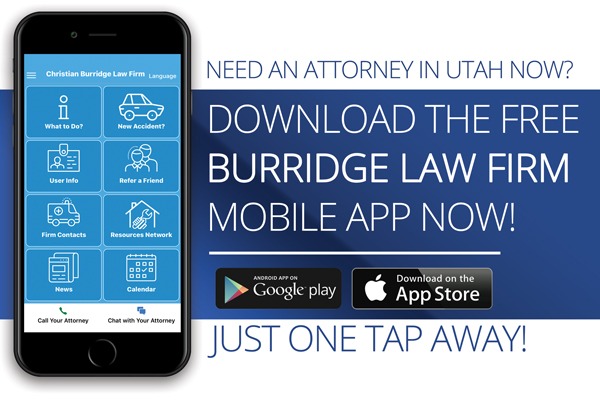When families in the Salt Lake Valley lose a loved one due to someone else’s negligence or wrongful actions, Utah law determines their legal rights and remedies. This guide explains Utah’s specific wrongful death laws and how they affect your family’s right to compensation.
Filing Requirements in Utah
Utah law establishes specific requirements for wrongful death claims. The personal representative of the deceased person’s estate must file the wrongful death claim, or the heirs may file directly. This differs from some neighboring states and provides Utah families more flexibility in pursuing justice.
For Salt Lake Valley residents, claims are typically filed in the Third District Court, though venue may vary depending on where the death occurred or where the defendant resides. The personal representative acts on behalf of both the estate and surviving family members, coordinating with local courts throughout the process.
Time Limits for Filing
Utah imposes a two-year statute of limitations for most wrongful death claims. This means families must file their lawsuit within two years from the date of death. However, if a government entity is involved (such as a UTA bus accident or incident at a public facility), a Notice of Claim must be filed within just one year.
For Salt Lake Valley families, these deadlines become particularly important given the presence of numerous government entities in the area, including:
- University of Utah Health
- Salt Lake City Corporation
- Salt Lake County facilities
- Utah Transit Authority
- State government offices
Eligible Beneficiaries Under Utah Law
Utah law specifically defines who can receive compensation from wrongful death claims. Primary beneficiaries include:
The surviving spouse maintains primary rights under Utah law. Their relationship with the deceased directly influences compensation amounts, particularly in Salt Lake Valley cases where dual-income households are common.
Children, including adopted children, have strong recovery rights. Utah courts consider factors particularly relevant to Salt Lake Valley families, such as education costs at local institutions and the area’s cost of living when determining compensation.
Parents of unmarried children may recover when no spouse or children exist. Utah’s courts examine the unique aspects of the parent-child relationship and financial interdependence.
Types of Recoverable Damages in Utah
Utah allows considerable flexibility in recoverable damages for wrongful death cases. Economic damages include:
Lost income and benefits, calculated based on Salt Lake Valley’s specific economic factors, including local salary data, cost of living, and career opportunities in Utah’s growing economy.
Medical expenses from Utah healthcare providers, including costs at facilities like:
- University of Utah Hospital
- Intermountain Medical Center
- St. Mark’s Hospital
- Salt Lake Regional Medical Center
Funeral and burial expenses at local facilities receive full consideration.
Non-economic damages in Utah address personal losses:
Loss of companionship receives significant consideration in Utah courts, acknowledging the state’s strong family values and community ties.
Mental anguish compensation reflects the emotional impact on surviving family members, with no statutory cap in Utah for these damages.
Proving Your Case in Utah Courts
Utah law requires proving specific elements in wrongful death cases:
Duty: Demonstrate the defendant’s legal obligation to the deceased, whether through professional responsibility, property ownership, or general public safety duties common in the Salt Lake Valley area.
Breach: Show how the defendant failed to meet Utah’s standards of care, which might involve violations of state laws, local ordinances, or professional standards.
Causation: Establish direct links between the breach and death, often utilizing expert testimony from local medical professionals and accident reconstruction specialists familiar with Salt Lake Valley conditions.
Utah’s Comparative Fault Rules
Utah follows a modified comparative negligence system with a 50% threshold. This means families can recover damages as long as the deceased person was not more than 50% at fault. However, the compensation reduces by their percentage of fault.
For example, in a fatal accident on I-15 through Salt Lake Valley, if the deceased person was 30% at fault, the family would receive 70% of the total damages awarded.
Our Experience with Utah Law
Our Salt Lake Valley wrongful death attorneys bring extensive experience with Utah’s specific requirements. We understand the local courts, judges, and procedural rules that affect case outcomes in the Third District and surrounding jurisdictions.
Take Action to Protect Your Rights
Let our experienced Salt Lake Valley legal team help you navigate Utah’s wrongful death laws. We offer:
Free Case Review
✓ Analysis of Utah Law Application ✓ Local Court Process Explanation ✓ Timeline for Legal Action ✓ Salt Lake Valley Evidence Preservation ✓ Family Support Resources ✓ Clear Strategy Development
Contact Us Today
Your family deserves experienced legal support from attorneys who understand both Utah law and Salt Lake Valley communities. Schedule your free consultation:
- In-person meetings at our Salt Lake Valley office
- Home visits throughout the Wasatch Front
- Virtual consultations available
- Same-day appointments
- Evening and weekend availability
- Immediate investigation team deployment
Don’t face this difficult time alone. Contact Utah’s trusted wrongful death attorneys today.
Disclaimer: This information about Utah law is for educational purposes only and does not constitute legal advice. Laws change regularly. Consult qualified legal counsel for current guidance specific to your situation.



